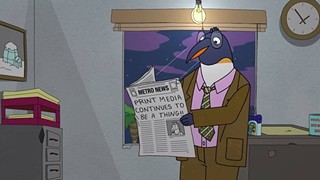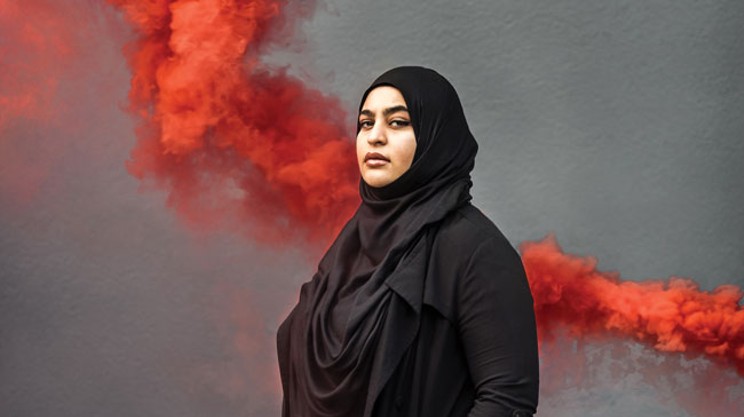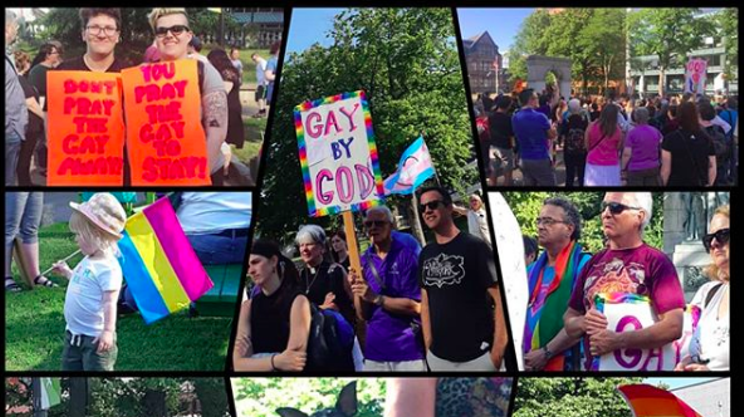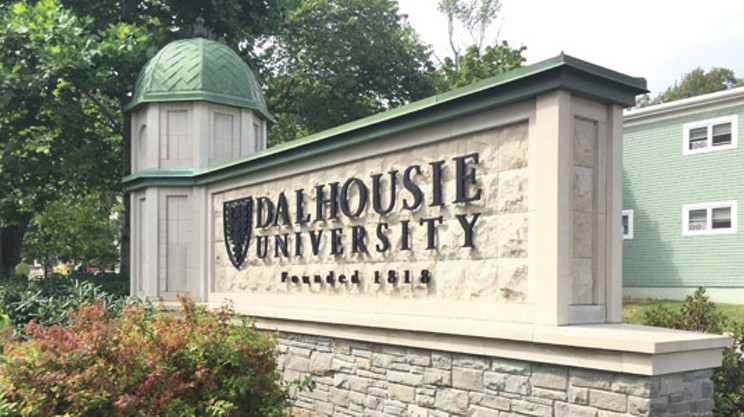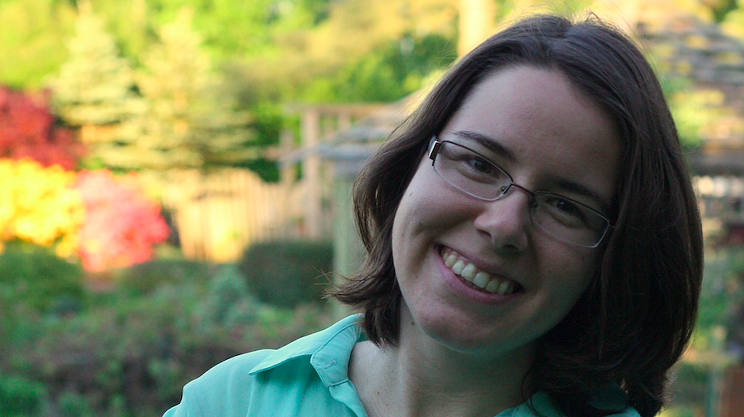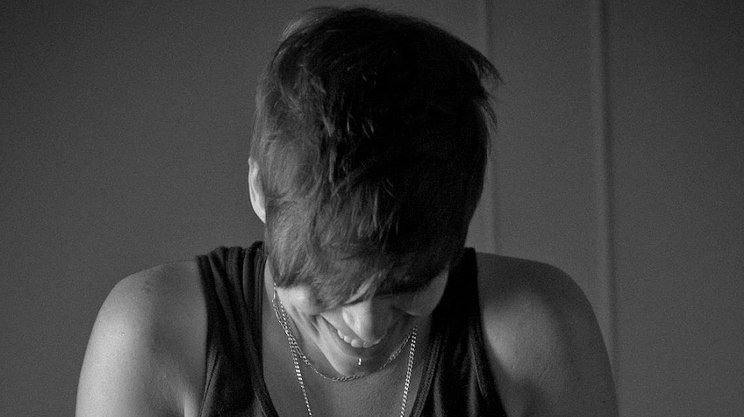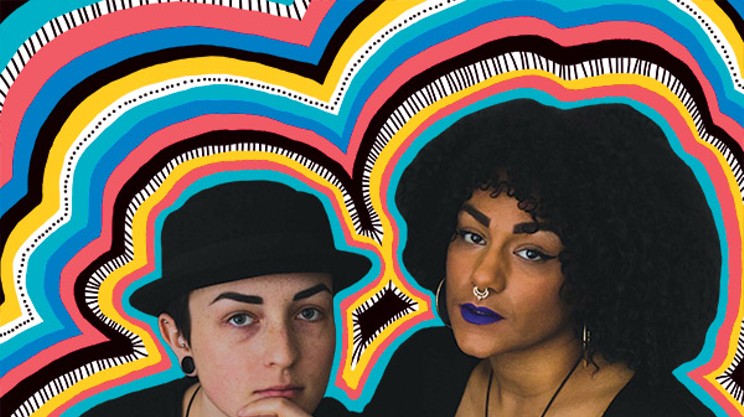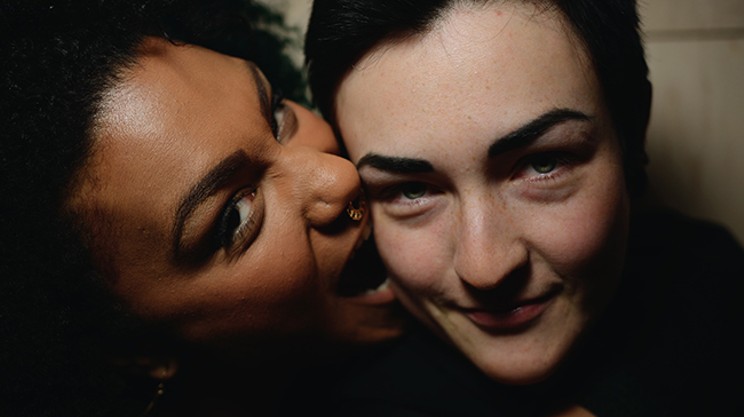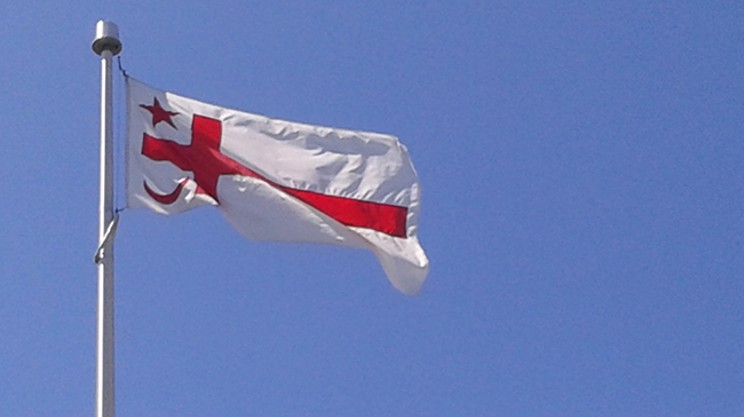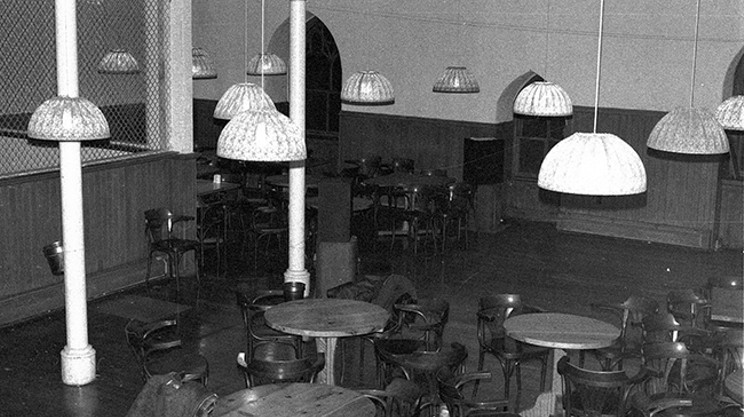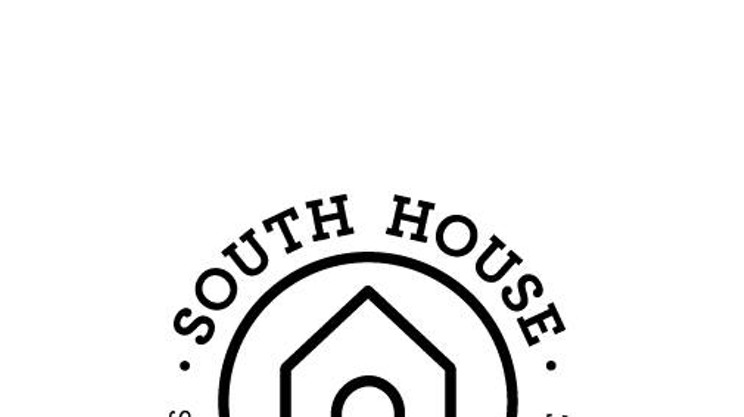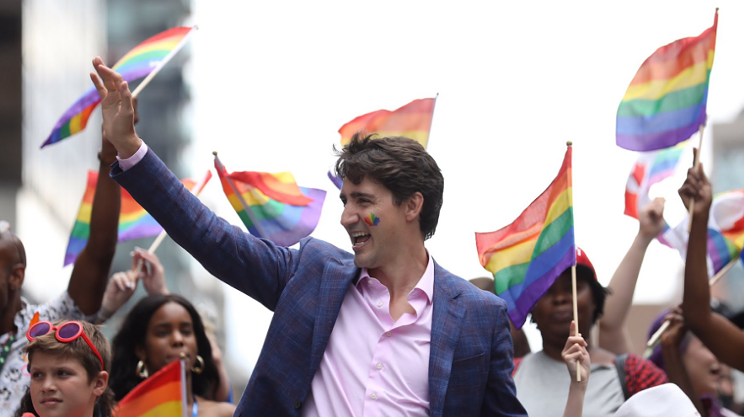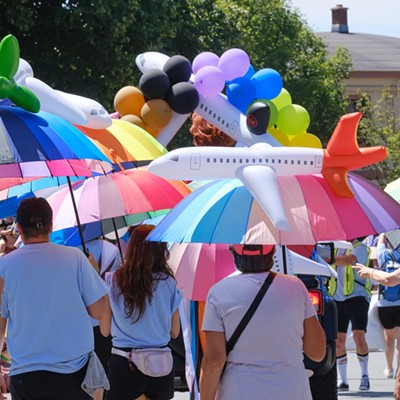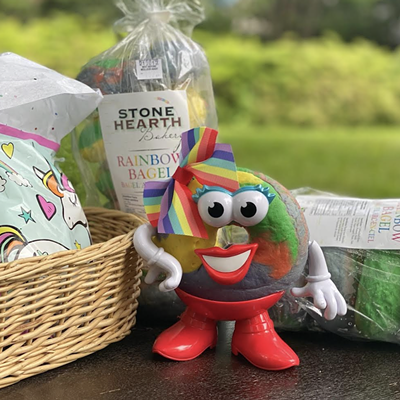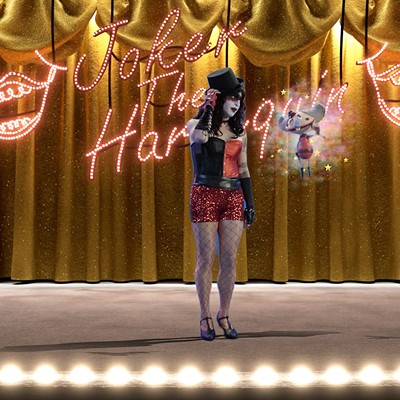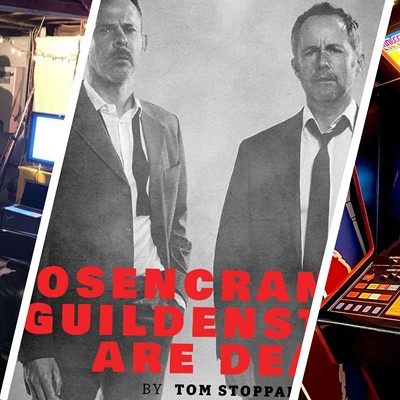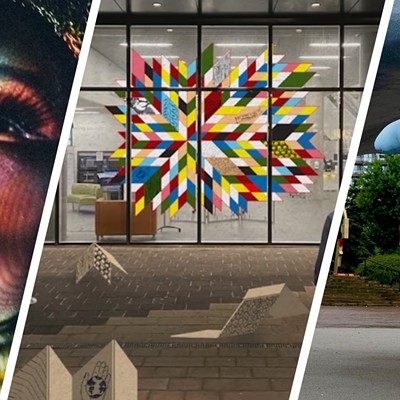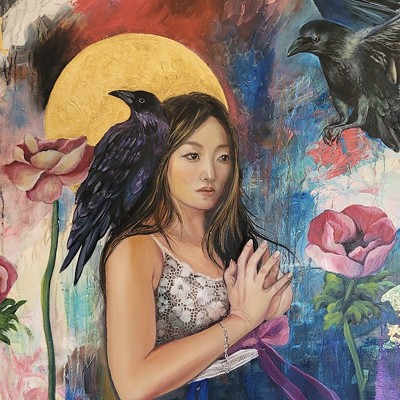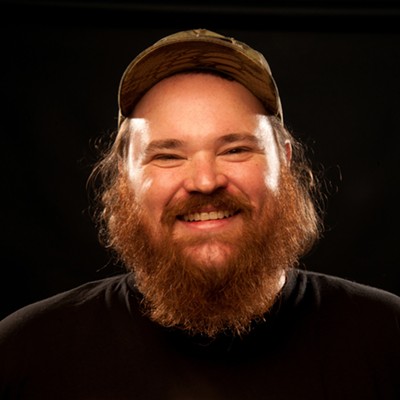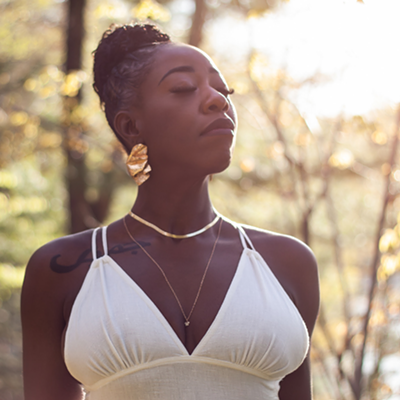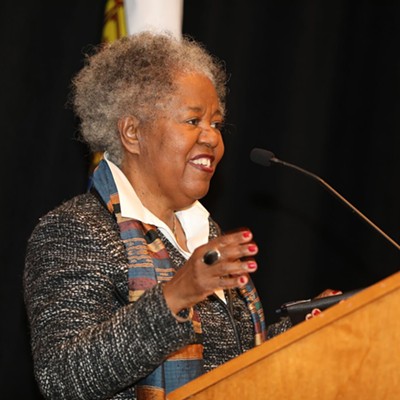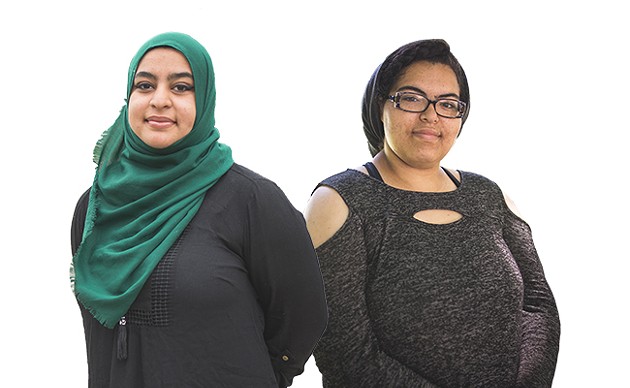
"It seemed like once we got to the point where marriage equality was a thing, a lot of people just kind of put their shoes on the shelf and went the other way," says Wilmot, head of Mount Saint Vincent University's Queer Collective. "We were the ones who started the fight and you reaped the benefits. Now you're leaving us to get to where you are, by ourselves."
Wilmot's not alone. Many folks who are BIPOC (Black, Indigenous and people of colour) have long been
In the wake of a total shit-show of an annual general meeting last October, Halifax Pride has been announcing multiple changes. Coincidentally, the motion to hire Adam Reid as executive director was voted on during that very same AGM, and it's now up to him to help mend the problems that have been brewing long before he was in charge. What happened at the meeting, Reid says, is indicative of larger, underlying issues.
During the AGM, an anti-pinkwashing motion was brought forth by members of Queer Arabs of Halifax was voted down by attendees, many of which were believed to come from outside the LGBTQ+ community. One major point of controversy was the presence of materials from the Size Doesn't Matter campaign at Pride's community fair. The materials championed Tel Aviv as a queer-friendly city, but QAH and other community members raised concerns about dismissing the struggle of queer Palestinians living under the occupation of Israel.
Per Coast
"When we had this contentious issue and this contentious discussion, we didn't really have the skills or the policies in place to allow us to have that in a way that wasn't damaging to the community," says Reid.
Before his role as executive director, Reid was involved with Pride in other ways, particularly as the longtime director of the Queer Acts Theatre Festival. His current position is the first of its kind within Halifax Pride.
Reid says the board has been aware of community concerns for years and members knew more needed to be done to address them. Halifax Pride takes feedback every year following the festival, and a lot of it has been repetitive: People felt they weren't fully welcomed or represented in Pride.
"Now that I am here and we finally have a full-time staff person, we are finally able to invest that extra time," explains Reid. "Frankly, the volunteer board has been responsible for getting one of the city's largest festivals out the door every year," and that task is overwhelming in and of itself.
"They haven't really always felt like they had the capacity to really tackle the underlying structural issues that were causing these criticisms that they were hearing year after year."
Reid wasn't on the board at the time of the AGM, but he feels there's a sense of regret that "this contentious issue preceded all the work we've been
Representatives from Queer Arabs of Halifax didn't respond
Halifax Pride has been trying to fill "gaps in policy" to improve the festival, listed on page eight of the official Pride Guide. One of them is discontinuing the booths on Pride's festival grounds, otherwise known as the "community fair."
The festival's most high-profile change was the decision by Halifax Regional Police to bow out of marching as a group in the parade. Just last week, Halifax Pride announced the RCMP would do the same. These decisions were made in collaboration and discussions with Halifax Pride.
The issue of police in Pride has been a controversial topic across the country and internationally. A year ago, the Royal Newfoundland Constabulary announced that officers would not be marching in uniform during the St. John's Pride parade, at the request of
The recent spike in the conversation is due in part to the Black Lives Matter protest in 2016, during which the Toronto branch of the activist group halted the city's Pride parade. BLM-TO released a list of demands, including an end to police floats and increased representation among Pride Toronto staff,
Olivia Nuamah took on the role of Toronto Pride executive director in February. With experience in community development and working with police under her belt, Nuamah felt she could see a way through the issues Pride was facing.
"We're so pleased that Black Lives Matter started that conversation, that it started in Toronto—one of the biggest Pride festivals in the world—and that it has led to a shift in how Pride engaged with the subject," says Nuamah, who will be part of Halifax Pride's evening speakers series.
Nuamah also takes issue with the notion that the shift in police involvement goes against the idea of inclusion.
"Inclusion, in fact, doesn't simply mean 'everybody all the time,'" she says. "Inclusion means we do whatever we can to make sure everybody feels as safe as possible."
And that sometimes means certain
"We're not saying these
Wilmot is happy Halifax police took BIPOC voices into
For instance, the monthly community meetings, instead of the quarterly meetings in place before, are a good idea. But Wilmot says the time of day and lack of child care make them inaccessible.
"The meetings tend to happen around dinnertime, and I'm like: If you have children and you're just getting off work, you're not gonna be able to go to this meeting."
It was Mount Pride which led the movement to boycott Halifax Pride last year, and the boycott was backed by the Nova Scotia branch of the Canadian Federation of Students. After meeting with Halifax Pride and seeing it was trying to improve things, Mount Pride surveyed students to see what the next step should be. The majority of students voted to end the boycott, so Mount Pride announced it would reverse the decision. Here's where it gets a little complicated.
"Due to the relationship the MSVU student union has with the Canadian Federation of Students of Nova Scotia, we are still a part of the overall boycott," explains Wilmot. "We started the boycott, we ended the boycott. Another
Mount Pride has since been replaced by the MSVU Queer Collective. Neither the collective nor the student union will be marching in the parade, but MSVU as an institution will be.
The Dalhousie Student Union has taken a different path, choosing to boycott Halifax Pride in spite of the festival's changes. A boycott motion passed in
"They did not really meet the concerns of our councillors," says DSU vice president Masuma Khan. "Some of the concerns were, what was Pride really doing to create a safe space for QTBIPOC [queer, trans, Indigenous, Black, people of colour] from their community?"
Reid counters that many of the concerns DSU listed on the motion were already being addressed. "When we told them that we were already working on those things and
Reid
"I'm open to the fact that Pride is sort of like an ever-evolving entity," says Reid. "The issues we face this year may not be those we face next year, and that's really exciting.
For Wilmot's part, they feel it's hard to say whether Halifax Pride's commitment to change is genuine until after the festival.
"Steps are being taken, and we'll definitely find out at the next AGM if enough steps have been taken," they say. "At this point, a lot of
They also point out that it's easy for
"You say you put out a seat for us, but that seat is covered in tacks. Would you sit there?"

